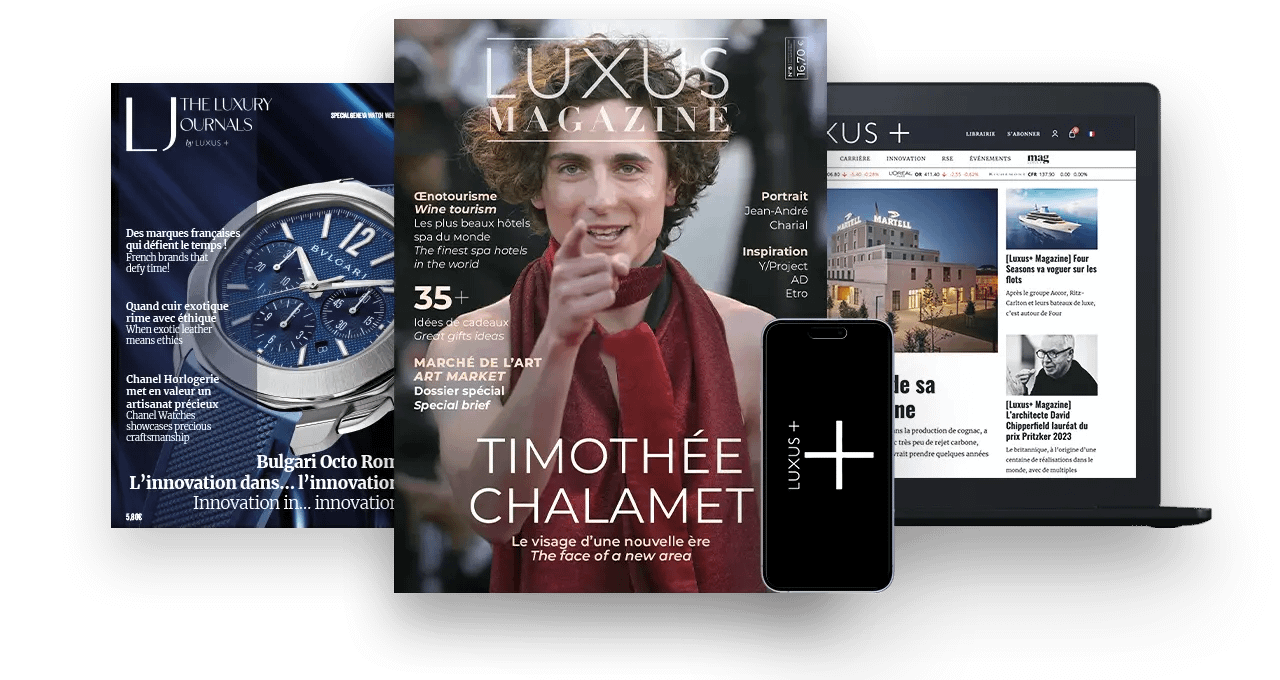Kering has just announced a halving of its net profit for the first half of 2024. With little confidence, the world’s second-largest luxury group is already anticipating a 30% decline in operating income for the second half of 2024.
After a 20% fall in sales in the first half, Gucci confirms its difficulties and drags its parent company, Kering, with it.
Usually the powerhouse of the luxury group, the Florentine House, still in search of a clear positioning (offer and price), is unable to halt the fall in sales.
Kering saw its net profit hal ved and sales plunge 11% year-on-year to 9 billion euros.
Market concerns
Against a backdrop of economic uncertainty, Kering published uninspiring results for the first half of 2024, with sales down 11% year-on-year to 9 billion euros.
In other words, a figure below analysts’ expectations, who were counting on a 9% drop, according to the Visible Alpha consensus.
And the future looks no brighter, with Chairman and CEO François Henri Pinault forecasting in a general note a fall in operating income of around 30% in the second half of 2024. A cautious approach made necessary “given the uncertainties weighing on the evolution of consumer demand for Luxury goods over the coming months after the slowdown observed in the first half of 2024.”
This anticipation should be seen in the light of the 42% drop in sales to 1.6 billion euros in the first half of the year.
Although the situation has not worsened since the beginning of the year, the second quarter did not manage to do better than the first.
On the other hand, Kering’s share price, in the wake of its earnings release, reached its lowest level since 2017 on Wednesday July 24. Losing 4.66% of its value, the stock faced its worst decline since October 2023.
However,François-Henri Pinault wants to be reassuring and patient, considering that to get the Gucci “rocket” back into orbit, it would first have to go through several complicated periods.
Not an isolated case
Gucci is once again coming up against slowing demand in its 2024 financial year, particularly in the Chinese market. Far from the 4.1 billion euros in sales recorded in the first half of the year, the Florentine fashion house saw its sales plummet by 19%.
Gucci is not the only Kering flagship to bear the brunt of changing buying habits: Saint Laurent is also seeing red, with first-half sales down 9% to 1.4 billion euros.
Generally speaking, the entire luxury goods sector seems to be coming up against a normalization of demand.
Eyewear and Bottega Veneta, new growth drivers?
These difficulties overshadow the esteemed success of the Kering Eyewear and Corporate division, as relayed by the Group in its press release. In the first half of 2024, these sales would have exceeded one billion euros.
While Gucci and Saint Laurent were directly penalized by the slowdown in luxury goods sales in China, Bottega Veneta fared much better, with sales stabilizing at 836 million euros.
While the Asia-Pacific region – which includes China – appears to have been hardest hit by the slowdown in sales (-25%), Japan is anew-found Eldorado for the luxury goods industry, as it is for Kering, which reported sales growth of +27% in the archipelago.
A matter of positioning?
Unlike its rivals LVMH and Richemont, Kering appears to be much more exposed to a market downturn. This vulnerability is explained by its heavy dependence on Gucci. The Italian house, itself particularly dependent on the Chinese market, accounts for half of the group’s sales and even generated ⅔ of its operating results in 2023.
Since the appointment of Sabato de Sarno as head of fashion collections two years ago, there is every reason to believe that the Florentine House is experiencing great difficulty in imprinting its singularity as much as its desirability.
Beyond stores perceived by some experts as too austere and cold, or collections judged too conventional, Gucci’s problem lies rather in its lack of coherence in terms of both price and offer: the House oscillates between luxury and fashion codes.
Gucci’s strategy of building luxury through price is facing serious headwinds in China.
Other experts point to a more general managerial Achilles’ heel.
On this last point, the number-two luxury brand has responded with a series of management reshuffles. Mélanie Flouquet and Armelle Poulou joined the Executive Committee last March, while Laurent Claquin, a loyal member of the Group with solid experience in the cultural sector, was appointed to the new position of Group Brand Director. The latest appointment was the arrival of Ewa Abrams (17 years’ experience with jeweller Tiffany & Co) as President of Kering America.
In addition to clarifying the positioning of its Gucci and Saint Laurent Houses, it is becoming clear that to restore the lustre and revive the desirability of its brands, Kering will have to follow the example of its main competitor LVMH and strengthen the cultural dimension of its various Houses. Faced with a Luxury Number that is constantly widening the gap with its communications budget, Kering will undoubtedly have to increase its image investments in order to win back the hearts of its customers.
Read also > KERING : LAURENT CLAQUIN APPOINTED GROUP BRAND DIRECTOR
Featured Photo: © Gucci






































